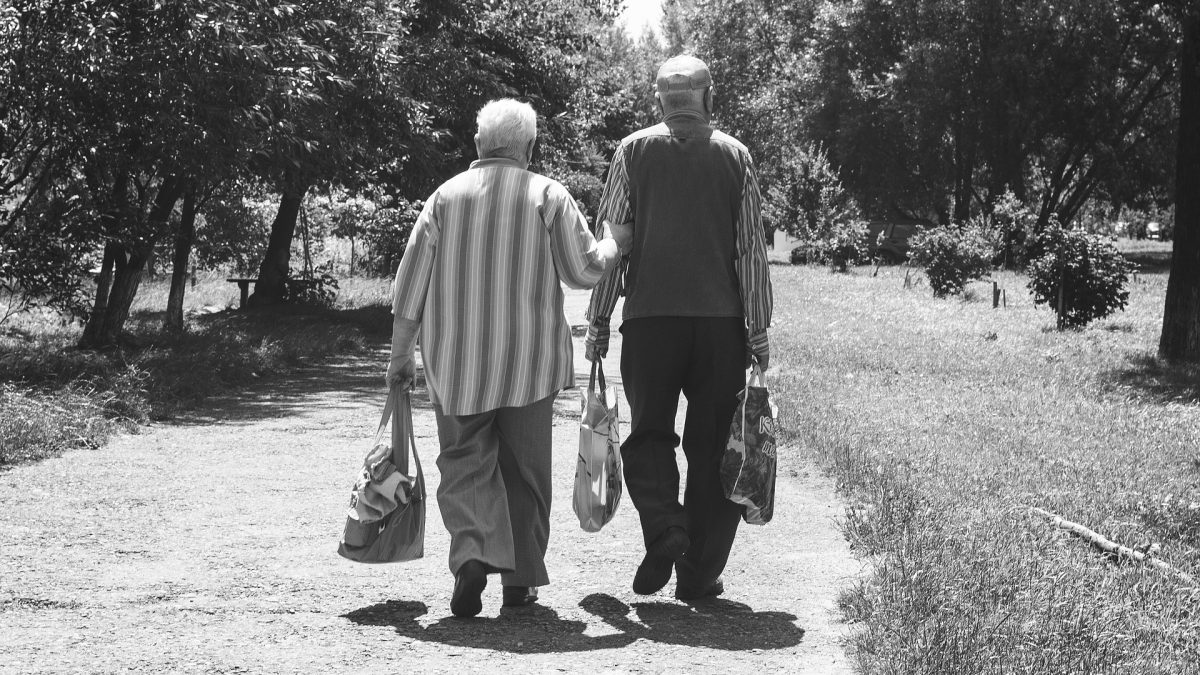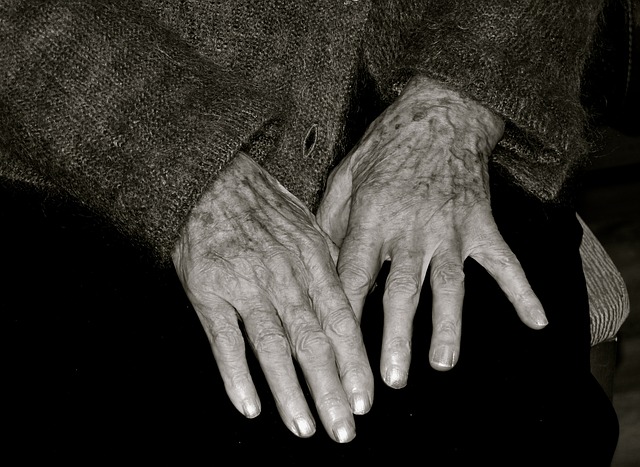Violence against older persons is a violation of their human rights and includes physical, psychological, and sexual abuse, economic exploitation, and neglect.
On the occasion of World Elder Abuse Awareness Day, marked on 15 June, Ombudswoman Tena Šimonović Einwalter highlights the urgent need to improve the identification and prevention of violence against older persons—not only domestic violence, but also institutional abuse, for example in care homes, and abuse resulting from the misuse of life-long and life-care support contracts.
The most recent available data from the Commission for Monitoring and Improving the Work of Criminal and Misdemeanour Proceedings and the Enforcement of Sanctions Related to Protection from Domestic Violence—also the primary source of data on violence against older persons—shows a significant increase in the number of older victims of domestic violence in Croatia: from 314 in 2020 to as many as 834 in 2021 in misdemeanour court proceedings.
Comprehensive data is key to effective action
However, the Commission’s annual report currently does not provide insight into the causes behind the rise in violence against older persons. It remains unclear whether this is due to better identification of violence, a greater willingness to report it, or a genuine increase in its occurrence. The report also lacks information on how many cases resulted in convictions versus acquittals, or the severity of penalties imposed in cases where convictions occurred.
This must be addressed in order to effectively combat violence against older persons through appropriate public policies. Only with such insights can targeted and planned interventions be directed toward the most critical areas, as data serves as a guide for where efforts need to be intensified.
Such data should be comprehensive and include, for instance, violence in residential care homes, and it is important that they are sufficiently disaggregated—by type of violence, the relationship between the perpetrator and victim, court outcomes, and similar indicators.
In addition to more complete data, the establishment of a Working Group for Monitoring the Occurrence of Violence Against Older Persons—both in families and in care homes—would certainly contribute to addressing this issue. This is also one of our recommendations to the Ministry of Labour, Pension System, Family and Social Policy in our 2022 Annual Report.
Timely identification of violence is crucial
Complaints received indicate that violence often goes unrecognized, particularly in cases treated merely as property disputes.
Therefore, it is necessary to strengthen both education and the effectiveness of services that come into first contact with victims or are part of the system for combating violence—such as the police, social welfare services, and the judiciary—to ensure they can identify violence and, through efficient procedures, provide victims with adequate protection and hold perpetrators accountable.
According to the World Health Organization, one in six people over the age of 60 was subjected to some form of violence in the past year. This underscores the importance of empowering all victims to report abuse, as shame, lack of information, or mistrust in institutions may prevent them from doing so.
It is also essential to work on eliminating stigma, including clearly and repeatedly stating that the victim is never at fault and that responsibility lies solely with the perpetrator, while simultaneously empowering victims to report abuse and ensuring they receive the necessary assistance and support when they do.
Economic violence through the misuse of life-care support contracts
A common form of abuse against older persons is economic violence, including the misuse of life-care support contracts, where property ownership is transferred immediately after the contract is signed. Unfortunately, nearly two-thirds of those who signed such contracts—or considered doing so—did not seek legal advice or additional information about their consequences, according to our 2019 survey. This can lead to abuse, where older persons are left without both their property and the care they need. To prevent such outcomes, additional safeguards are necessary.
For example, the Civil Obligations Act should be amended to rename these contracts to make their nature clearer to those signing them, limit the number of such contracts an individual can enter into, and establish a registry for them. A step in this direction is the creation of a Working Group within the Ministry of Labour, Pension System, Family and Social Policy, which we welcome and actively participate in. Furthermore, the Civil Procedure Act should include provisions to classify legal proceedings for terminating these contracts as urgent. These are also recommendations of the Ombudswoman to the relevant authorities, including in the 2022 Annual Report.
Violence in care homes for older persons
Violence in residential care homes can include various forms of neglect and denial of care, as well as harassment by caregivers, other staff, or fellow residents.
Unfortunately, complaints received and visits to care homes reveal some recurring issues—for instance, insufficient medical staff, lack of dental and gynecological care for bedridden residents, irregular personal hygiene, inadequate privacy during care, and rarely taking immobile residents outdoors due to poor conditions. In some cases, residents are carried down stairs by hand for medical appointments due to a lack of accessibility.
These situations constitute violations of fundamental human rights, including the right to life, protection from degrading and inhuman treatment, dignity, privacy, family life, and protection from discrimination. They highlight the urgent need for a serious and systemic response to the problem.
To ensure stronger protection of older persons and mechanisms to monitor their rights in UN member states, this institution supports the adoption of a Convention on the Rights of Older Persons, as the rights of older persons in Croatia remain one of the Ombudswoman’s key priorities.
What else can help prevent violence against older persons?
Combating ageism—the perception of older persons as a less important social group that no longer contributes to society but burdens it, for example, through the social welfare or healthcare systems—can also help address violence against older persons. Stereotypes and prejudice can lead to age-based discrimination, both in individual cases and structurally and institutionally. Age discrimination is often linked with discrimination based on gender, health status, financial status, etc., and ultimately, age discrimination can be a gateway to violence against older persons.
It is vital to continuously raise public awareness about age discrimination and violence against older persons, including through campaigns and public messaging, highlighting their rights and contributions to society, and providing training for professionals across different systems.
The foundation for change also lies in educating children—through the school system—about human rights, equality, the rights of older persons, non-violence, solidarity, empathy, and civic responsibility.
In addition, support for older persons should be ensured and developed through various social services, psychosocial assistance for older victims of violence, and free legal, medical, and social aid.
You can learn more about this topic in the Ombudswoman’s 2022 Annual Report [here].
According to UN’s estimates, 1 in 6 people over 60 years of age experienced some form of abuse during the past year. National data, on the other hand, show that half of the elderly violence victims remain silent, mostly due to fear, shame, or lack of information.
On the occasion of the World Elder Abuse Awareness Day observed globally on 15 June, Ombudswoman Tena Šimonović Einwalter has warned once more about the need for the stronger protection of the older persons from the abuses of the support-until-death contracts. These represent a form of elder abuse and (economic) violence and can potentially expose older persons to serious human rights violations.
How Can We Better Protect Older Persons?
Due to the insufficiently detailed regulation of the support-until-death contracts and the lack of protection mechanisms, significant numbers of older persons deciding to conclude such contracts unfortunately end up without both care as well as their property.
Thus in her 2021 Annual Report to the Croatian Parliament Ombudswoman Šimonović Einwalter addressed several recommendations to the Ministry of the Judiciary and Public Administration advocating for the establishment of a better framework for the regulation of the support-for-life and support-until-death contracts, including setting up a registry of the concluded contracts.
Additionally, taking into account the fact that it is not likely that one support provider can take adequate care of a larger number of older and infirm persons, it would be beneficial to limit the number of such contracts a single provider is allowed to conclude. Public notaries should be given access to the existing data records, so that they could ascertain the existence of the legal capacity of the clients to conclude such contracts as well as the existence of any possible legal obstacles. Furthermore, it is extremely important to make court proceedings for the purpose of the annulment of these types of contracts urgent, which can be achieved by amending the Civil Procedure Act.
On the other hand, in the process of the adoption of the new Social Welfare Act, the Ombudswoman advocated for the granting of the right to certain social services and material rights within the social welfare system to the persons who have instigated court proceedings to annul such contracts, which was adopted.
Advocating for a Convention on the Rights of Older Persons
Support contract abuses are only one of the serious issues faced by older people in Croatia. Others include the insufficient accessibility of the health care and social services, both those aimed at enabling them to continue living in their own homes (such as, for example, home assistance and day care) as well as long-term institutional care (the problems in this area include long waiting lists, the inadequate monitoring of the work of the long-term care facilities, etc.). At the same time, as much as a third of older persons in Croatia live below the poverty line, which places them at a higher risk for human rights abuses.
Thus, with the aim of providing this social group with more visibility in the global human rights protection system and establishing the obligation of the individual states to report on the progress they have made in improving their position, Ombudswoman Šimonović Einwalter has been advocating for the adoption of a legally binding instrument at the UN level aimed at the protection of the rights of older persons.
Additional information:
- In line with WHO’s definition, elder abuse is “a single, or repeated act, or lack of appropriate action, occurring within any relationship, where there is an expectation of trust, which causes harm or distress to an older person.”
- National data mentioned in this text has been derived from the research conducted by the NGOs Duga Vukovar and Centar za kvalitetu života 50+ on the topic of domestic violence.
- In line with the relevant provisions of the Civil Obligations Act, under a contract for support-until-death, one party (provider of support) undertakes to support the other party or a third party (recipient of support) until their death and the other party undertakes to make a transfer of all or part of their property to the provider of support.
- More information on the initiative for the adoption of a legally binding instrument at the UN level for the protection of the rights of older persons is available here.



